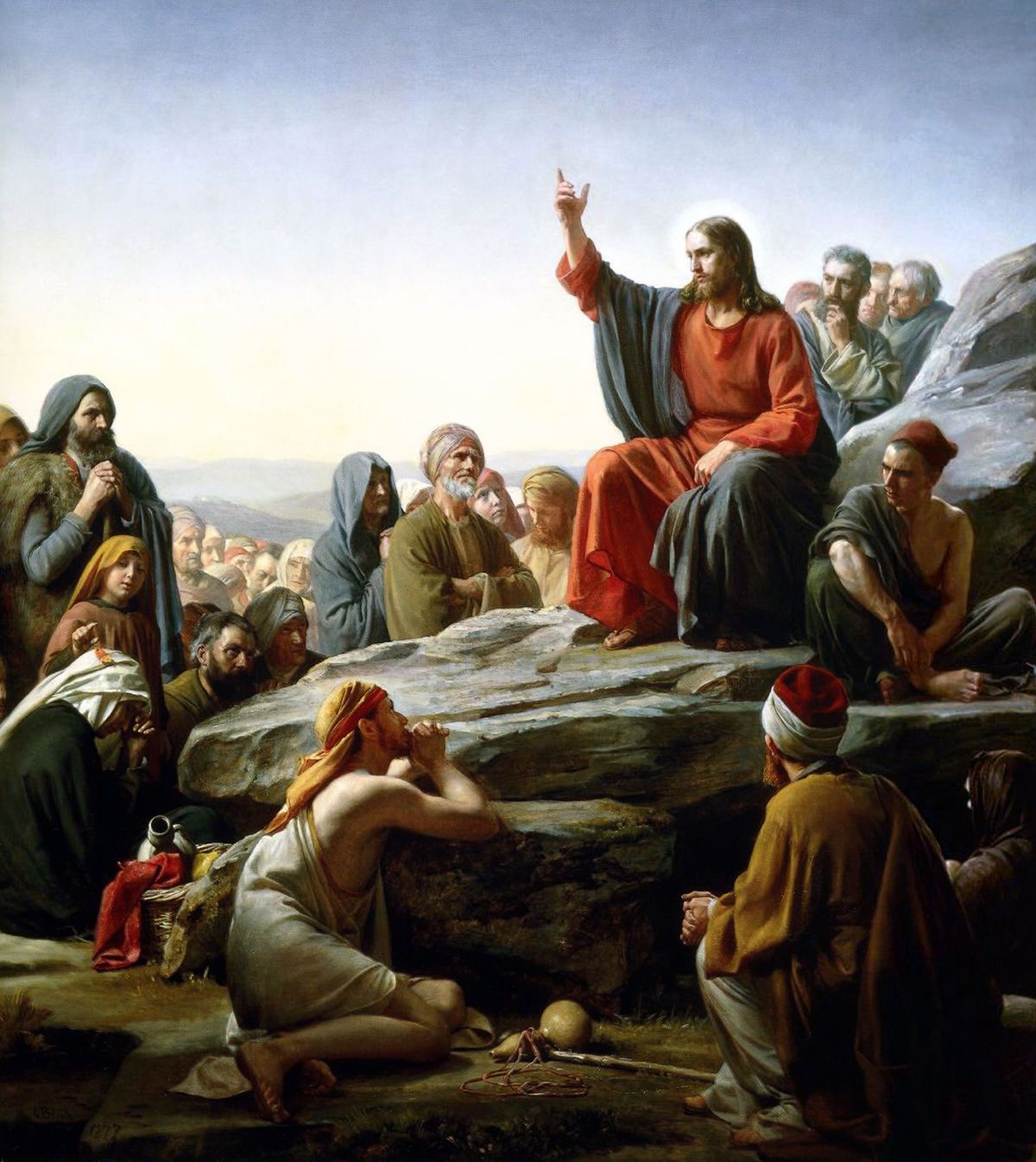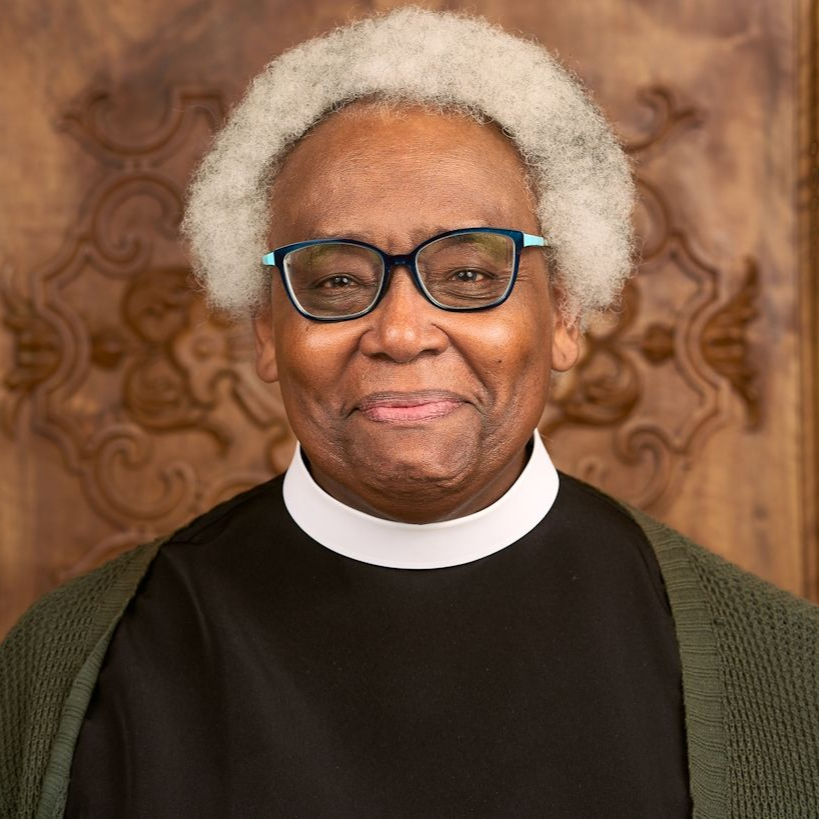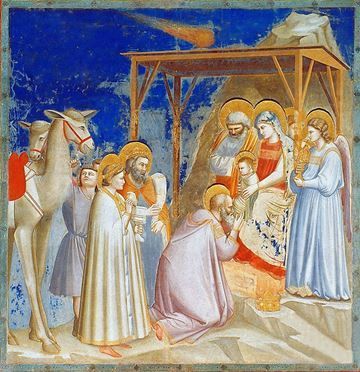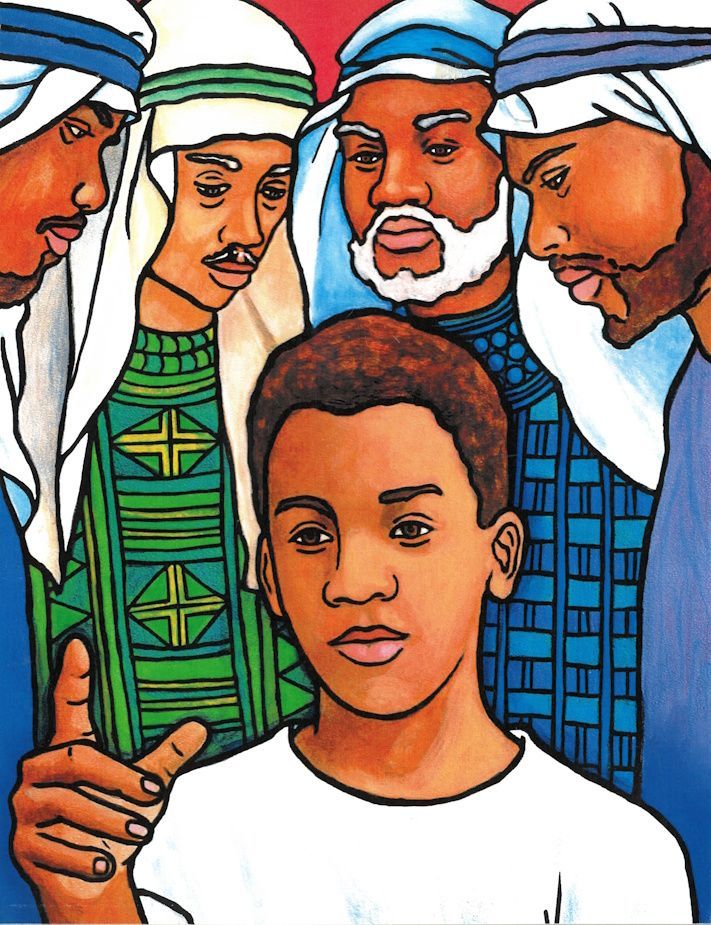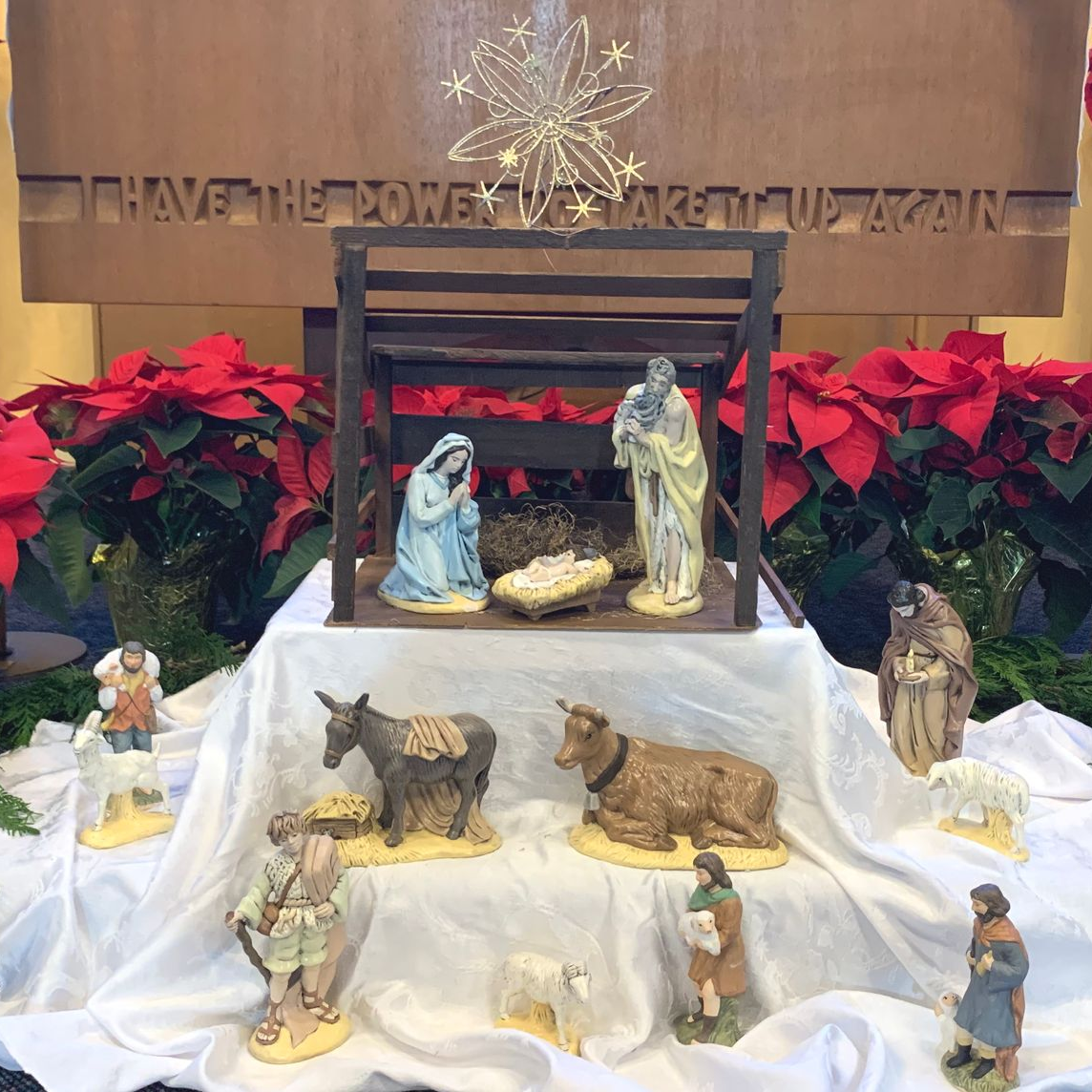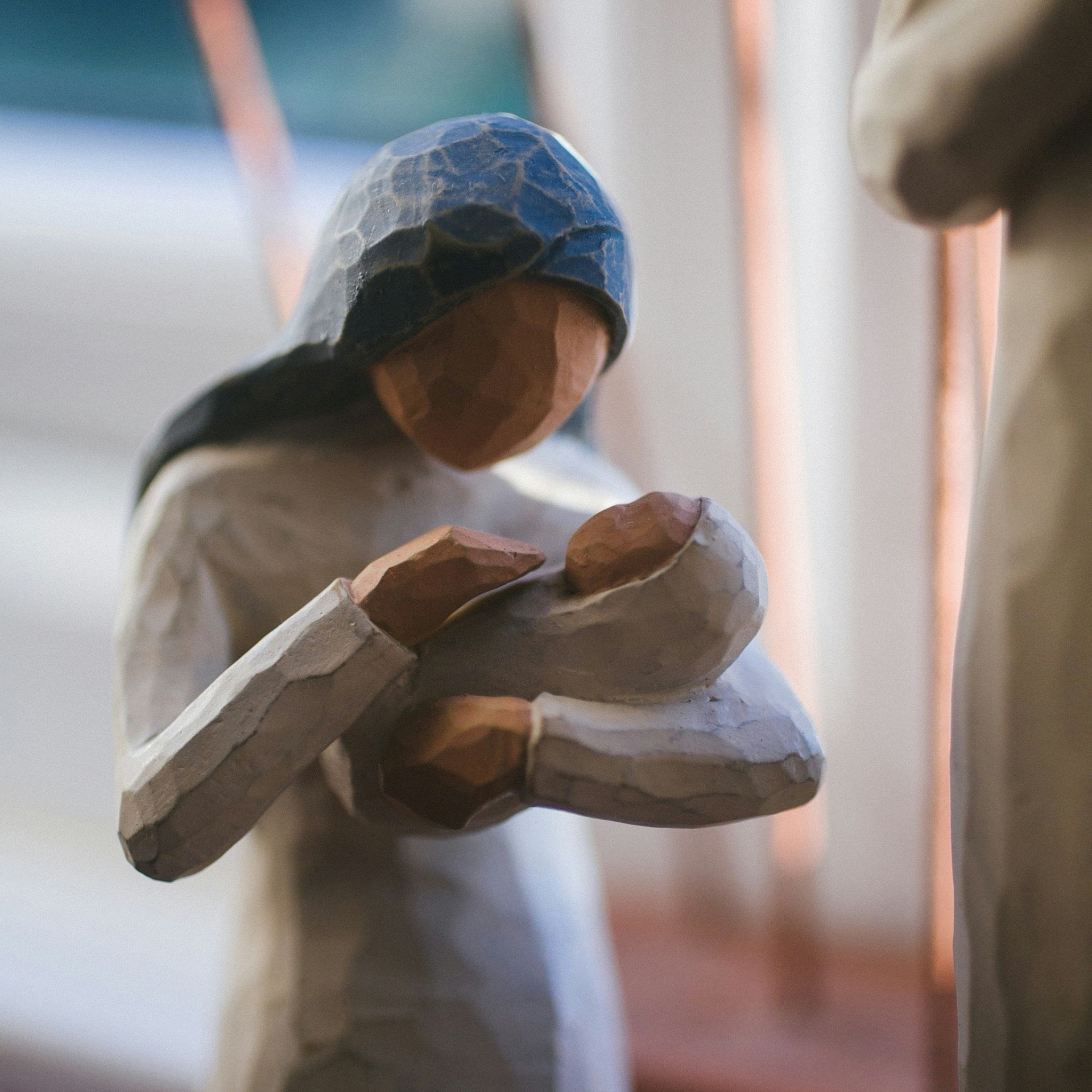The Sin of Self-Sufficiency
Make a habit of getting rid of some of your money. Unburden yourself and repair some of the damage done by previous generations.
2025-41
sermon preached at Church of the Good Shepherd, Federal Way, WA
www.goodshepherdfw.org
by the Rev. Josh Hosler, Rector
The Eighth Sunday after Pentecost (Proper 13C-Tr1), August 3, 2025
Hosea 11:1-11 ;
Psalm 107:1-9, 43 ;
Colossians 3:1-11 ;
Luke 12:13-21
“I don’t know how you guys do it,” my friend Katy said to me this week. “Giving away ten percent? That is really, really hard.”
It surprised me to hear this from someone who is not involved in a church. And I was impressed. Katy and her family have seriously looked at their finances and tried to imagine giving away ten percent of their income.
Katy went on to explain that she is involved in a group specifically intended for white folks who want to undo the historical legacy of racism—rather like a secular version of our Sacred Ground curriculum. One fundamental piece of that puzzle is generational wealth, which statistically runs along racial lines. I was impressed, too, that a secular group is encouraging people to tithe. They’re saying the same thing I say all the time: “Make a habit of getting rid of some of your money. Unburden yourself and repair some of the damage done by previous generations.”
Now, I’m well aware that this message lands differently on your ears, depending on your situation. Let’s imagine, for argument’s sake, a two-by-two grid with four quadrants. On one axis is our income level. And the other axis is our level of fear about money, which is conditioned by our family culture and our lived experiences.
In one square are those of us who have more than we need and say, “Yes! I am capable of tithing.” Whether you then go ahead and do it is, of course, up to you.
In another square are those who say, “Yes, I get what you’re saying. But what if I need that money later? And if I just give it away, I relinquish control over it, and then I don’t know that it will actually be used well. If I keep it, I get to make those decisions myself!”
For those in the third square, an encouragement to tithe—or maybe to give at all—may feel like a personal attack. What do I know of the sacrifices your family has to make to stay afloat? Or, what do I know of fixed-income living in a time when the economy is so unpredictable?
Finally, there are the folks in the fourth square. Among those of us who live from hand to mouth can be found some of the most generous people of all. These are those who joyfully part with enough income from week to week and month to month that the financial planner you could never afford would call you a fool.
Now, if you’re having a strong emotional reaction to any of this, know that I’m not trying to make you feel guilty. I’m calling all of us to an honest assessment of our position. I have no idea who’s in which quadrant, and that’s none of my business unless you want to unpack some of this with me one-on-one. My job as a preacher is to encourage theological reflection … and generosity.
Today, Jesus gives us a parable about a farmer who has earned a lot of money. The farmer’s land has produced well year after year, and he has become wealthy. What will he do with his excess? He socks it away. He wisely saves for the future.
But Jesus tells us the farmer is a greedy fool. Why?
Take a look in this passage at all the first-person singular pronouns: “What should I do, for I have no place to store my crops? I will do this: I will pull down my barns and build larger ones, and there I will store all my grain and my goods. And I will to my soul, ‘Soul, you have ample goods laid up for many years: relax, eat, drink, be merry.’”
For those grammarians who were trying to count, that was eleven occurrences of “I” and “my,” and a second-person “you” applied to himself, plus the implied “you” of four consecutive imperative verbs: “relax, eat, drink, be merry.” So, in the course of only three sentences, the farmer addresses himself sixteen times!
Is there any other human being in this person’s life? Maybe he has an administrative assistant named Smithers to do his bookkeeping and to send on errands, since they didn’t have Doordash yet. Maybe he also has high fences around his barns. “Who’s that lurking around my barns? Smithers, call out the dogs!”
Hopefully none of us lives like this ancient version of Mr. Burns from The Simpsons. But we don’t have to be cartoon characters for the parable to apply to us. What makes the character a fool is this: not that he has too much, but that he keeps too much, and that he keeps himself removed from the concerns of all the other humans around him. His sin is that he has become self-sufficient.
Yet isn’t self-sufficiency the ultimate American dream? Life … for me. Liberty … for me. The pursuit of happiness … for me. Wait, you want me to be concerned about others? About all of us together? Isn’t that … (gasp) … socialism?
American society is structured for independence, if you can make enough money to maintain it. It is not primarily structured for interdependence. And we live in a time when all vestiges of interdependence are under attack. USAID? Gone, and hundreds of thousands of people worldwide already dead as a result—mostly children. The Department of Education? On the way to oblivion. The Environmental Protection Agency? Now it’s the Environmental Pillaging Agency. No more federal funding for scientific and medical research, so I hope there’s not another pandemic on the way! We heard a couple days ago that the Corporation for Public Broadcasting is shutting down operations. We’re well aware of the loss of Episcopal Migration Ministries. Food stamps? Over a hundred thousand people in Washington State alone are about to lose that option. Even some of our oldest and wealthiest universities are paying multi-million-dollar bribes to keep from being strangled to death.
What do all these organizations have in common? They are intended for the mutual benefit of all of us. They exist because people decided at some point, “Hey, if we pool our resources, we can help everybody!” And then we got taxed to fund them. Honestly, it’s so little tax money that most of us don’t even miss it. Most of our taxes go to pay for military spending, plus the big three: Social Security, Medicare, and Medicaid. Oh, wait … looks like Medicaid is next. Add to that the continuation of giant tax cuts for the super-wealthy, and you see where this is going.
What do we hear from those who support these cuts? “Oh, the churches should do that work, not the government.” The churches—like ours, with our $20,000 deficit. Those who think the churches can just pick up this slack have certainly never done the math. But they also tend to think people like me live in a mansion like Joel Osteen, rather than a 1400-square-foot house with one bathroom.
All the same, the church has been around a lot longer than the United States, a lot longer than capitalism, and a lot longer than any modern form of democracy. And our current concerns notwithstanding, I suspect that the church will still be around long after these things are gone. America will fall apart someday, maybe even in our lifetimes. But Jesus’ Parable of the Rich Fool will still be with us, holding out a larger vision for what we can be to one another.
So through all the noise, hear the voice of God speaking to the Rich Fool: “This very night your life is demanded of you!” Most folks assume this means that God immediately takes the man’s life to expose the futility of his hoarding. But the Greek grammar is tricky. The sentence may instead mean: “This very night your possessions demand your life!” In other words, your real god is the things you own. You have imbued inanimate objects with the power of deity, and that deity demands daily the recommitment of your soul.
What in this world is truly worthy of our worship? We all must wrestle with that question. In our passage from the Letter to the Colossians today, we are urged to “seek the things that are above.” This is figurative. “Things that are above” are actually all around us every day, in this world. They are the people and situations that call us away from total self-sufficiency and into a life of interdependence, in which we cannot control everything, but in which we rely on the love and generosity of others to carry all of us.
Why must we “seek the things that are above”? Because, as we hear: “You have died, and your life is hidden with Christ in God.” Were you aware that you’re already dead? Pinch yourself! What could this mean? Well, our future death is an absolute certainty. But a core piece of the Christian faith is this: the sting of death has been taken away forever. Jesus did that. I don’t understand how, and I don’t always believe it myself. I get scared about the future, and when money was tighter for me than it is now, I kept more of it around.
Early in our three years of seminary, as we struggled to maintain enough cash flow for our weekly grocery trips, I confessed to Bishop Greg that we weren’t pledging to the church at all. His response was clear: “As a seminarian and a future priest, you have placed yourself under orders. It is your responsibility not just to pledge, but to tithe. You’re going to need to let go of this fear and just do it.”
So we did. The math didn’t work out on paper. But in real life, we never wanted for anything. And we found ourselves to be … less scared. And our relationships with others got stronger … more authentic. We just gave the ten percent right off the top, as if it had never been ours to begin with, and we trusted that we wouldn’t need it. We didn’t.
Maybe the Rich Fool figured he’d eventually get around to sharing. Maybe he said, “I’ll just work one more year, retire … and then I’ll start to give some of it away.” But we don’t get to live in any time other than the present. We have already died, and our life is carefully preserved, mystically, in the bosom of the resurrected Christ. Can we believe this together? Will it strengthen us to become more interdependent—to live a little more simply, so that others may simply live?



